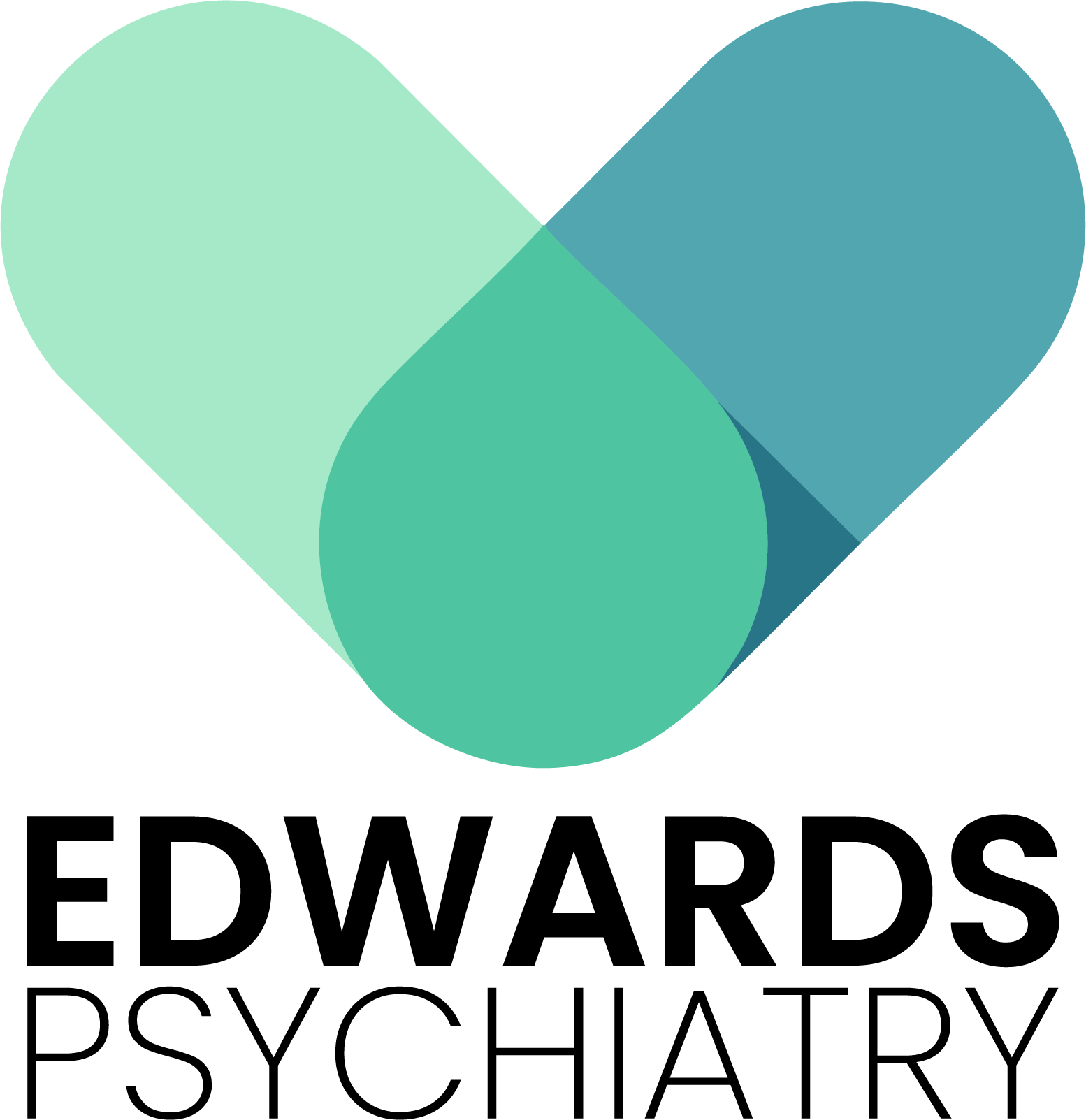5 Signs You Might Have ADHD as an Adult That Have Nothing to Do with Hyperactivity | Seattle ADHD Evaluation
Understanding adult ADHD beyond the stereotypes can be life-changing for many Seattle professionals
When most people think about ADHD, they picture restless children who can't sit still in classrooms. But for many adults, ADHD in adults looks completely different, quieter, more internal, and often missed entirely. At Edwards Psychiatry in Seattle, we see many successful professionals who've struggled for years with symptoms they never connected to ADHD.
The reality is that attention deficit hyperactivity disorder affects millions of adults, and hyperactivity often fades as we age while other symptoms persist into adulthood. If you've been wondering whether your struggles with focus, organization, or emotional regulation might be more than just stress, you're not alone.
Article Roadmap
In this comprehensive guide, you'll discover the subtle signs of adult ADHD that have nothing to do with hyperactivity, understand why this mental health condition is often overlooked in adults, and learn about effective treatment options available in Seattle. We'll explore the diagnostic process, address common misconceptions, and help you understand when it might be time to seek professional evaluation.
What ADHD Actually Looks Like in Adults
ADHD is a neurodevelopmental disorder that affects how the brain develops and functions. While many people associate ADHD symptoms with hyperactivity and impulsive behavior, the reality is much more complex. Many adults with ADHD primarily experience inattentive symptoms rather than hyperactive ones.
The mental health professional community now recognizes three types of ADHD: predominantly inattentive, predominantly hyperactive-impulsive, and combined type. For adults, especially women, the inattentive type is most common and often goes undiagnosed because symptoms can be subtle and internalized.
Adults with undiagnosed ADHD often develop sophisticated coping mechanisms that mask their symptoms. They might use extensive calendar systems, rely heavily on reminders, or work extra hours to compensate for difficulties with organization and time management. While these strategies can be helpful, they don't address the underlying mental health condition.
Sign #1: Chronic Difficulty with Executive Functioning
Executive functioning encompasses the mental skills that help you plan, organize, and complete tasks. Many adults with ADHD struggle significantly in this area, even when they appear highly capable in other aspects of their lives.
You might find yourself constantly running late despite your best efforts, struggling to break large projects into manageable steps, or feeling overwhelmed by daily tasks that others seem to handle effortlessly. This isn't about laziness or lack of motivation, it's how ADHD affects the brain's ability to manage complex cognitive processes.
People with ADHD often experience what feels like a disconnect between their intentions and their actions. You might know exactly what you need to do but feel unable to initiate or sustain the mental energy required to complete tasks. This symptom can be particularly frustrating because it affects both personal and professional areas of life.
Time management becomes a constant challenge. You might chronically underestimate how long tasks will take, get lost in details while missing deadlines, or struggle with prioritizing when everything feels equally urgent. These difficulties often lead to stress and anxiety as you try to keep up with daily demands.
Sign #2: Persistent Problems with Attention and Focus
Attention difficulties in adults with ADHD extend far beyond simply being easily distracted. Many adults describe feeling like their mind is constantly racing or jumping from thought to thought, making it difficult to sustain focus on any single task.
You might notice that your attention varies dramatically depending on your interest level. Tasks that capture your interest might hold your focus intensely, sometimes to the point where you lose track of time or forget about other responsibilities. This phenomenon, called hyperfocus, is common in people with ADHD and can be both a strength and a challenge.
Conversely, tasks that don't immediately engage you might feel nearly impossible to maintain attention on, even when you know they're important. You might find yourself reading the same paragraph multiple times, struggling to follow conversations, or getting distracted by internal thoughts during meetings or lectures.
Mental health professionals recognize that attention symptoms often manifest differently in adults compared to children. Rather than obvious distractibility, you might experience more subtle attention difficulties like feeling mentally fatigued after tasks requiring sustained concentration or having trouble filtering out background noise and visual distractions.
Sign #3: Emotional Regulation Challenges
One of the most overlooked aspects of ADHD in adults involves difficulties with emotional regulation. Many people with ADHD experience intense emotions that can feel overwhelming or disproportionate to the situation.
You might find yourself feeling more sensitive to criticism than others, having difficulty bouncing back from disappointments, or experiencing mood swings that seem to come out of nowhere. These emotional symptoms are often mistaken for other mental health conditions like anxiety or depression, leading to misdiagnosis.
Rejection sensitivity is particularly common among adults with ADHD. This involves an intense emotional response to perceived rejection or criticism, even when none was intended. You might find yourself overanalyzing social interactions, avoiding situations where you might face criticism, or feeling devastated by minor setbacks.
Emotional impulsivity can also be challenging. You might say things you later regret, make decisions based on momentary feelings, or struggle to pause and think before reacting emotionally. This isn't about lacking self-control, it's about how ADHD affects the brain's ability to regulate emotional responses.
Sign #4: Chronic Disorganization Despite Efforts
Many adults with ADHD struggle with organization in ways that go beyond typical messiness. You might have systems that work temporarily but eventually break down, leaving you feeling frustrated and overwhelmed by clutter and disorganization.
Physical spaces might feel chaotic despite your best efforts to maintain order. You might lose important items regularly, struggle to file documents or organize paperwork, or find that organizing systems that work for others don't seem to stick for you.
Mental organization can be equally challenging. You might have difficulty keeping track of commitments, struggle to remember details from conversations, or find it hard to organize your thoughts when speaking or writing. This can affect both personal relationships and professional performance.
Many adults with ADHD describe feeling like they're constantly playing catch-up, trying to organize their lives while new responsibilities and commitments continue to accumulate. This cycle can lead to chronic stress and feelings of inadequacy, especially when comparing yourself to others who seem naturally organized.
Sign #5: Working Memory and Mental Fatigue Issues
Working memory involves your ability to hold and manipulate information in your mind while using it to complete tasks. Adults with ADHD often experience significant challenges in this area, which can affect everything from following multi-step instructions to engaging in complex conversations.
You might find yourself forgetting what someone just said while they're still talking, losing your train of thought mid-sentence, or struggling to follow directions that involve multiple steps. These difficulties aren't related to intelligence, they're about how ADHD affects the brain's ability to temporarily store and work with information.
Mental fatigue is another common but often misunderstood symptom. Tasks that require sustained mental effort might leave you feeling completely drained, even when they wouldn't typically be considered strenuous. You might need frequent breaks during cognitive work or find that your mental clarity varies significantly throughout the day.
Many adults with ADHD describe feeling like their brain works harder than others' to accomplish the same tasks. This increased mental effort can lead to exhaustion, particularly in environments that aren't naturally accommodating to ADHD brains, such as traditional office settings or academic environments.
Why Adult ADHD Often Goes Undiagnosed
Several factors contribute to missed ADHD diagnoses in adults. Historical bias in research and diagnostic criteria has meant that ADHD symptoms in women and adults who don't display obvious hyperactivity have been significantly understudied until recently.
Many adults developed compensatory strategies during childhood that masked their symptoms well enough to avoid detection. High intelligence, supportive family environments, or structured school settings might have provided enough external support that ADHD symptoms didn't significantly impair functioning until adult responsibilities increased.
Gender bias also plays a significant role. Women and girls are more likely to have inattentive ADHD symptoms, which are less disruptive in classroom settings and therefore less likely to prompt evaluation. Many women don't receive their first ADHD diagnosis until their own children are being evaluated for the condition.
Co-existing conditions can also complicate diagnosis. Adults with ADHD frequently experience anxiety, depression, or other mental health conditions that might be treated without recognizing the underlying ADHD. This can lead to partial treatment success, where some symptoms improve but core ADHD difficulties persist.
The ADHD Evaluation Process at Edwards Psychiatry
At Edwards Psychiatry, we understand that seeking an ADHD evaluation as an adult requires courage and self-advocacy. Our comprehensive evaluation process is designed to be thorough, respectful, and culturally responsive to the diverse Seattle community we serve.
The diagnostic process begins with a detailed clinical interview where we explore your current symptoms, childhood history, and how difficulties have affected various areas of your life. We use standardized rating scales and psychological tests to gather objective information about attention, executive functioning, and other cognitive abilities.
We also consider your complete mental health picture, including any co-existing conditions that might be present alongside ADHD. Many adults have both ADHD and other mental health conditions, and effective treatment often requires addressing all aspects of your mental health.
Our team recognizes that ADHD can present differently across different cultural backgrounds and life experiences. We're committed to providing evaluation and treatment that's responsive to your individual needs and circumstances, whether you're a busy professional, parent, student, or anyone seeking answers about your mental health.
Treatment Options Available for Adults with ADHD
Effective treatment for ADHD typically involves a combination of approaches tailored to your specific symptoms and life circumstances. At Edwards Psychiatry, we offer comprehensive treatment planning that might include medication, psychotherapy, coaching, and lifestyle modifications.
ADHD medications can be highly effective for many adults, helping to improve focus, reduce impulsivity, and enhance executive functioning. We work carefully with each patient to find the right medication and dosage, monitoring both effectiveness and any potential side effects.
Cognitive behavioral therapy and other psychotherapy approaches can help you develop practical strategies for managing ADHD symptoms. Therapy can address co-existing anxiety or depression, improve self-esteem, and help you develop more effective coping strategies for daily challenges.
Coaching specifically focused on executive functioning can be particularly helpful for adults with ADHD. This might involve developing organizational systems, improving time management skills, or learning strategies for breaking large tasks into manageable steps.
Living Successfully with Adult ADHD
Many adults with ADHD find that proper diagnosis and treatment significantly improves their quality of life. Understanding that your struggles have a neurobiological basis can be incredibly validating and help reduce self-criticism that may have developed over years of undiagnosed difficulties.
Successful ADHD management often involves finding the right balance of support, whether through medication, therapy, lifestyle changes, or accommodations at work or school. The Americans with Disabilities Act provides protections and reasonable accommodations for people with ADHD in workplace and educational settings.
Building a support network of understanding family members, friends, or support groups can also be invaluable. Many adults find it helpful to connect with others who understand the unique challenges and strengths that come with having an ADHD brain.
Self-advocacy becomes an important skill as you learn to communicate your needs effectively in various settings. This might involve requesting accommodations, setting boundaries to protect your mental energy, or simply understanding and honoring how your brain works best.
When to Seek Professional Help
If you recognize yourself in these signs and symptoms, particularly if they're significantly affecting your work, relationships, or overall quality of life, it may be time to seek professional evaluation. ADHD is a highly treatable condition, and many adults experience significant improvement in their daily functioning with appropriate support.
Consider seeking evaluation if you've tried various self-help strategies without lasting success, if you're struggling with chronic feelings of underachievement despite your efforts, or if you suspect that what you've attributed to personality traits might actually be symptoms of a treatable condition.
At Edwards Psychiatry, we're committed to providing comprehensive, culturally responsive ADHD evaluation and treatment for adults in Seattle and throughout Washington state. Our team understands the unique challenges faced by adults seeking mental health support, particularly in communities that have been historically underserved by traditional mental health services.
Frequently Asked Questions About Adult ADHD
Can you develop ADHD as an adult?
ADHD is a neurodevelopmental disorder that starts in childhood, but many adults don't receive their diagnosis until later in life. Symptoms must have been present before age 12, though they may not have been recognized or diagnosed at the time.
What's the difference between ADHD and just being disorganized?
ADHD involves persistent patterns of symptoms that significantly impair functioning across multiple areas of life. While everyone experiences occasional attention or organization difficulties, ADHD symptoms are chronic and interfere with daily functioning despite efforts to manage them.
Are ADHD medications safe for adults?
ADHD medications are generally safe and effective when prescribed and monitored by qualified mental health professionals. We work closely with each patient to find the most effective treatment with the fewest side effects.
How long does an ADHD evaluation take?
A comprehensive ADHD evaluation typically involves multiple appointments over several weeks. This allows time for thorough assessment, including psychological testing, review of historical information, and careful consideration of all factors that might affect diagnosis.
Can ADHD be treated without medication?
While medication is often an important component of ADHD treatment, many people benefit from comprehensive approaches that include therapy, coaching, lifestyle modifications, and accommodations. Treatment plans are always individualized based on your specific needs and preferences.
Is ADHD covered by insurance?
Many insurance plans cover ADHD evaluation and treatment. However, as a private-pay practice, Edwards Psychiatry provides superbills that can be submitted for potential reimbursement and accepts HSA/FSA benefits.
What should I expect during my first appointment?
Your first appointment will involve a comprehensive discussion of your current symptoms, childhood history, and how difficulties have affected various areas of your life. We create a welcoming, non-judgmental environment where you can share your experiences openly.
Taking the Next Step Toward Understanding Your Brain
Recognizing potential signs of ADHD in yourself takes courage, especially if you've spent years believing that your struggles were simply personal shortcomings. The truth is that ADHD is a common, well-understood condition that responds well to appropriate treatment and support.
At Edwards Psychiatry, we're here to help you understand your unique brain and develop strategies that work with, rather than against, how you naturally function. Whether your concerns are related to ADHD or other mental health conditions, our team is committed to providing expert, compassionate care that honors your individual experiences and goals.
If you're ready to explore whether ADHD might explain some of your lifelong challenges, we invite you to schedule a free 15-minute consultation with Domenique Edwards, ARNP, PMHNP-BC. This brief conversation can help determine whether a comprehensive evaluation might be beneficial for you and answer any initial questions you might have about the process.
Your journey toward understanding and supporting your mental health is an investment in your future well-being, relationships, and personal success. Many adults find that ADHD diagnosis and treatment opens doors to possibilities they never knew existed, allowing them to finally work with their brain rather than constantly fighting against it.
Taking this step doesn't mean anything is wrong with you, it means you're ready to understand and support yourself in the most effective way possible. At
Edwards Psychiatry, we're honored to be part of that journey with you.
Share This Post
About the Author:
Domenique Edwards, MSN, ARNP, PMHNP-BC
Domenique is the founder of Edwards Psychiatry and a Board-Certified Psychiatric-Mental Nurse Practitioner specializing in ADHD care for adults and families. As a multiracial Black and Italian clinician, she brings both clinical expertise and lived understanding to mental health care, particularly for BIPOC and LGBTQIA+ communities.
Trained at a top university, Vanderbilt University School of Nursing, Domenique has been practicing independently in Seattle since 2017. She's passionate about providing the kind of collaborative, culturally competent psychiatric care she wished her own family had access to, where patients feel truly heard and understood.
You Might Also Like






